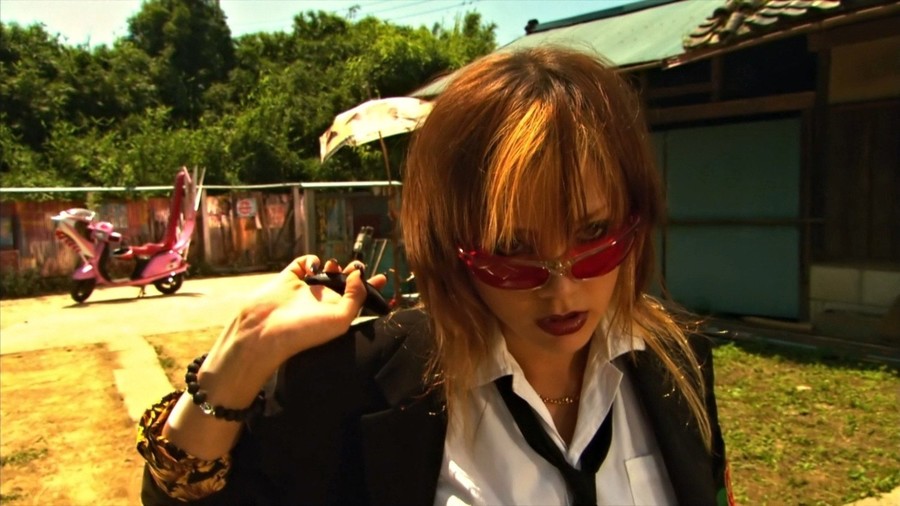Archive - 7th Five Flavours Film Festival
Kamikaze Girls
Awards and festivals
Film description
Momoko dreams of a fairy tale life (precisely – a hedonistic life of aristocrats in the rococo France). She is not at all discouraged by the fact that she lives with her loser of a father in the Japanese province. She rejects the culture of cheap supermarkets and banal entertainment, and chooses sweet dresses, colorful umbrellas and Strauss, played on a pink iPod. Her life becomes complicated with the appearance of Ichigo, a crude representative of a biker subculture, bosozoku. The two girls have only one thing in common – their love for freedom.
Nakashima's cult film contributed to the popularity of the "Gothic Lolita" subculture – girls, who come back from school and put on sweet, elaborate clothes, often hand-made and diligently decorated.
In this way, paradoxical from the Western perspective, they rebel against the standardization and the rigid rules of life in the Japanese society. The film also revolts on the formal level, with its blaze of colors, animated inserts, video clip montage, and dizzying speed. The ironic humor and the uncompromising narration brings to mind the works of Tarantino – "Kamikaze Girls" is a play with pop culture at its best.
Jagoda Murczyńska
Tetsuya Nakashima
Born in 1959 in Fukuoka. He received numerous awards for his music videos, commercials, and series. Director and screenwriter. After the success of "Kamikaze Girls" and "Memories of Matsuko", he was proclaimed as one of the most original and influential Japanese filmmakers.
1997 Beztroskie lato / Natsu jikan no otonatachi / Happy-Go-Lucky
1988 Beautiful Sunday
2004 Kamikaze Girls / Shimotsuma monogatari / Kamikaze Girls
2004 Żywot Matsuko / Kiraware Matsuko no isshō / Memories of Matsuko
2008 Pako i magiczna księga / Pako to mahō no ehon / Paco and the Magic Book
2010 Wyznania / Kokuhaku / Confessions




